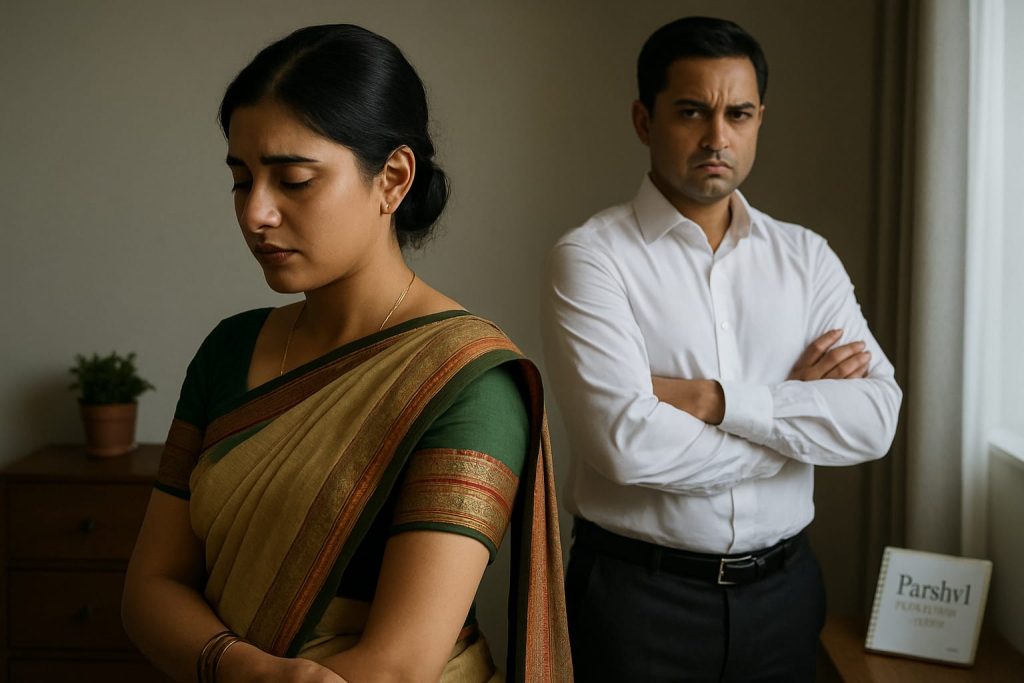Conflict and Relationships: How to Handle Differences and Become Stronger
Top 8 Tips to Handle Conflict and Relationships with Care :
1️⃣ What is Conflict and Relationships
Conflict and relationships tend to go together since no two individuals are exactly alike. When two persons bond be it as friends, lovers, or relatives differences will inevitably arise in opinions, needs, and expectations. Conflict does not necessarily indicate that the relationship is weak or failing. Conflict within relationships can be a chance for growth, learning, and increased connection when nurtured carefully.
2️⃣ Why Conflict Occurs in Relationships
Conflict and relationships become entangled when communication fails. Typical causes of conflict are unmet emotional needs, contrasting values, money concerns, parenting practices, or even everyday stress. Other times, little misunderstandings may escalate into larger problems if they are not tackled immediately. Knowing why the conflict occurs is the key to resolving conflict in a healthy manner.
3️⃣ The Positive Side of Conflict and Relationships
It may seem counterintuitive, but conflict and relationships can complement each other. When friends or lovers resolve conflict, they discover more about the other person’s boundaries, fears, and aspirations. Candid talks during conflict instill empathy and patience. Relationships that never have conflict may appear serene on the outside but may be shallow. Healthy conflict indicates that both individuals care enough to speak their minds and strive for resolutions.
4️⃣ How to Manage Conflict within Relationships
If you wish to successfully navigate relationships and conflict, communication is the most important key.
Following are a few easy steps:
Listen actively rather than planning your response while the other person is talking.
Don’t blame or attack; state how you feel using “I feel” statements.
Back off if it gets too heated, and return to the issue with a cooler head.
Emphasize the problem, not the individual. Keep in mind, it’s the two of you against the problem, not against one another.
5️⃣ Mistakes People Tend to Make During Conflict in Relationships
One of the biggest mistakes is to never confront conflict. Some individuals believe that silence will save the relationship, but what happens instead is unspoken problems accumulate and create resentment. Another error is allowing anger to take over when that occurs, things are said that can hurt and be difficult to retract. Finally, attempting to “win” the argument rather than resolving the issue can damage the connection. Conflict and relationship resolution should always be intended to make the bond stronger, not to win the argument of who is correct or incorrect.
6️⃣ Creating Stronger Bonds Through Conflict
When handled well, conflict and relationships actually build trust. If your partner, friend, or family member sees that you’re willing to listen and work through tough times together, they will likely feel safer sharing their true feelings in the future. Over time, this creates a foundation of mutual respect and deeper love. Couples who learn to navigate conflict with kindness often report higher satisfaction in their relationships.
7️⃣ Conflict and Relationships in the Long Term
Conflict is inevitable in any long-term relationship. What characterizes successful relationships is how they resolve such conflict. Healthy conflict resolution becomes second nature to the relationship with time. Couples, friends, or relatives who communicate well find that it becomes easier and less heated to resolve conflicts. They also become better at recognizing each other’s triggers and emotional needs.
8️⃣ 8 Things to Remember Regarding Conflict and Relationships
Don’t be afraid of conflict; view it as an opportunity to grow and learn together.
Be respectful in communication, even during heated times.
Apologize when you are wrong, and let go when you can.
Keep in mind that your relationship is more valuable than being “right.”
Get professional assistance if conflict becomes unbearable. A therapist or counselor can provide resources to weather difficult times.
Final Thoughts
Conflict and relationships go hand in hand; where there is close connection, there are also issues. Conflict need not be hurtful to relationships, however. With respect, love, and a willingness to listen and understand, conflict can strengthen and deepen relationships. Never forget that the manner in which you manage and resolve conflict determines the future of your relationship. Rather than fear conflict, welcome it as part of your life together.

Understanding Conflict and Relationships: A Guide to Building Stronger Bonds
Conflict and Relationships: Emotions
In conflict and relationships, emotions have a giant role to play. If we are hurt, ignored, or misunderstood, of course, we would react strongly. At times, emotions such as sadness or anger would make it more difficult for us to think straight or speak softly. That is why it is helpful to stop, breathe deep, and give ourselves a minute before we speak. Conflict rarely occurs because of what we say — it occurs because of how we say it. We can prevent small complaints from escalating into full-blown arguments when we know our feelings.
Setting Healthy Boundaries in Conflict and Relationships
One of the easiest ways to stay out of trouble is to establish healthy boundaries. Conflict and relationship function better when both individuals have a clear idea of what they need and what they’re okay with. For instance, perhaps you require some time to cool down before discussing an argument. Or perhaps you like to work things out immediately. When both individuals honor each other’s boundaries, arguments are easier to work through and less hurtful.
Conflict and Relationships: When It’s Okay to Step Back
Occasionally, the most intelligent action to take in an argument is to remove yourself temporarily. If the discussion devolves into screaming, or if both parties feel overwhelmed, it’s absolutely fine to take a break. Arguments and relationships get better when both individuals feel heard, respected, and safe — not attacked. A break allows everybody a chance to calm down and come back to the discussion with a clearer head and a gentler heart.
How Past Affects Conflict and Relationships
Our past, particularly what we witnessed or experienced as children or in past relationships, can influence how we handle conflict today. A person who was raised in a household where conflict was loud or hurtful might attempt to avoid conflict altogether. A person who never witnessed healthy disagreements, conversely, may not have the skills to engage in a peaceful discussion. When we know how our past forms us, we can be kinder and more tolerant with ourselves and the people we love. Conflict and relationships become stronger if we recognize these patterns and attempt to construct healthier methods of coping with difficult times.
When Conflict and Relationships Need Extra Help
And sometimes, despite your best efforts, conflict just continues to arise and seems difficult to resolve. Perhaps it’s the same old argument every time, or perhaps both individuals end up feeling hurt and stuck. That’s when seeking guidance from a counselor, therapist, or relationship coach can really be a game-changer. They can guide you on how to discuss things more effectively, work through past hurt, and create a stronger bond.
Final Thoughts
Relationships and conflict aren’t necessarily the enemy. It really means the two individuals care enough to fight and work through difficult times together. It’s not about never having conflict again, but about confronting it with compassion, patience, and understanding. If we view conflict as an opportunity to learn and grow, our relationships get richer, stronger, and better.

